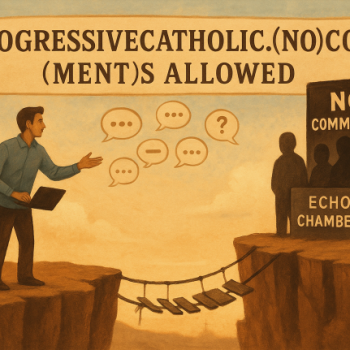WASH POST: GEE WHIZ, HEF AND HAIRSHIRTS
This weekend’s Washington Post Book World just posted online and TGF is one of three new nonfiction books about spirituality critiqued in a single review by author Lauren F. Winner. She wrote Girl Meets God a few years ago, a memoir about her conversion from Judaism to Christianty, as well as Real Sex: The Naked Truth About Chastity.
(Hhhhm. When it comes to picking reviewers for the book, lately I’m beginning to sense a theme . . . but I digress.)
TGF is sandwiched between two books, one about the members of the severe Carthusian religious order (they wear hairshirts) and another by my new friend Father Jim about the saints and his own spiritual journey.
Winner liked those two.
Mine? Well, she seemed kind of conflicted. Her critique starts off well enough but then . . . Let’s just say Hugh Hefner’s silk pajamas didn’t appear to resonate with her the same way the Carthusian hairshirts did. Hef certainly does elicit strong reactions in people, and particularly among my fellow Jesus people.
Winner calls what Hef has to say about his faith, such as it is, “pap,” and surmises that I’ve been “wooed” by it. Perhaps the fact that my (articulated) strong reaction was not to stand up, wag my finger in his face, and call him a sinner makes me appear shallow or less discerning. So be it. I can live with that.
It’s interesting to me how uncomfortable some folks are with nonjudgment when it comes to any and all things spiritual. It’s unsettling for them, I guess. Kind of itchy.
Like a hairshirt.
Here’s what Winner has to say about God Girl and The God Factor, from the April 16, 2006 Washington Post Book World:
The God Factor
Chicago Sun-Times columnist Cathleen Falsani also spent her early years thinking about spirituality. In the introduction to The God Factor , she describes an epiphany she had when she was 12. She was listening to a U2 album, and the Irish rock group’s lead singer, Bono, was belting out ” Gloria in te domine .” Falsani realized that the lyrics were Christian liturgy recast, and she was “transfixed” by the revelation that God could be found “in the places some people say God isn’t supposed to be” — even in rock music. That revelatory moment so many years ago has now prompted Falsani to interview celebrities, from literary wunderkind Jonathan Safran Foer to White House speechwriter Michael Gerson, about their spiritual lives. (Bono’s profile, of course, comes first.) The profiles are eclectic. The economist Jeffrey Sachs, a secular Jew whom Falsani says “can conjure the zeal of a preacher” when discussing our collective responsibility to help the downtrodden of the developing world, lambastes the American tendency to blame poor people’s poverty on their moral failings. The rock singer Melissa Etheridge describes herself as a “healer” and explains why she consults psychics. Refreshingly, the poet Seamus Heaney declined Falsani’s request for an interview; pleading hopeless inarticulateness about his spiritual life, he sent her a poem instead.
But Falsani’s reporting never transcends the gee-whiz feeling of her pre-teen rock-and-roll epiphany. To wit, her interview with Hugh Hefner. Though a tad uncomfortable in Bunny-land, Falsani seems wooed by the Playboy magnate’s descriptions of his commitment to morality. “I try to do what’s right, to do what I believe to be truly humanistic and rational and loving,” he says. And, even more banally: “Some of my most spiritual moments . . . come from walking through the forest, come from walking through the backyard; feeling connected to the wonder of what this is all about.” When Hefner concludes the interview by winsomely commenting that he’d not expected their conversation to be so “truly spiritual,” Falsani muses, “Me neither, Hef. Me neither.” It’s hard to know whether Falsani is being sarcastic or credulous; could she really have found profound meaning in the pap about wandering through the manicured backyard of the Playboy Mansion?
All in all, these profiles are entertaining, but Falsani would have done well to offer more interpretation. Now we know a little more about the religious lives of our superstars — so what? What does that tell us about America? That even our sophisticates and literati still believe in something? That America is spiritually diverse? Or spiritually superficial? Even an epilogue would have gone a long way toward making sense of these sacred snapshots.
All shall be well and all shall be well and all manner of book reviews shall be well.















